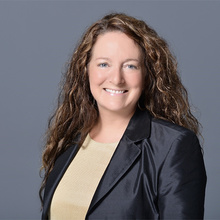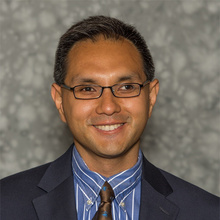Embracing Diversity: SLA Research in Multilingual Contexts
Attending and presenting at this FREE two-day event is an excellent opportunity for graduate students to gain experience presenting their own research, as well as meeting other researchers with similar interests.
This year’s conference will be in a blended format. Presenters and attendees can attend virtually or in person. This format invites graduate students from the host institutions (the University of Iowa, Minnesota, and Wisconsin-Madison), as well as institutions within the United States and internationally.
Registration is open
April 5, 1-6:30p
April 6, 8:30a-5p
Lindquist Center and Zoom
Registration closes 3/29
Itinerary
Presenters and attendees who participate in-person will be invited to a social event on Friday night and a FREE lunch on Saturday.
Objectives
- Conference presentations will contribute to the literature on linguistic diversity, language contact, language equity, and access to language learning opportunities through technology and innovation.
- Presentations will provide language educators and graduate students (within the Iowa City community and beyond) with new findings in the field of applied linguistics that may be applicable to their own research and practice.
- Presenters and attendees will seek to bridge the divide between research and language instructional practice in order to empower bilingual educators in higher education and K-12 education.
Keynotes

Martha Bigelow is Professor in Multilingual Education at the University of Minnesota in the Department of Curriculum and Instruction. She is a language teacher educator and researcher. Her work is local in that it focuses on community-engaged and school-based research with refugee-background, particularly East African youth, and global with projects in Somaliland, India, and Vietnam. In all of her work, she strives to recognize the complex intersections of language, schooling and identity in the teaching and learning process. |
"The intersection of language policies and language learning beliefs at a secondary school in Somaliland” This exploratory, qualitative case study of a private secondary school in Somaliland, with English as the language of instruction, revealed predictable intersections of beliefs about SLA and de facto school language policies (e.g., the more you speak English at school, the quicker and better you’ll learn English) and top-down policies that may gain or lose traction or get implemented unevenly (e.g., when standing on tile, speak only English, when standing on the earth, you can speak Somali). However, the practices are much more complicated than this. Students promulgated SLA myths of rapid-fire English learning and enforced gender-specific policies among peers. Largely non-African teachers were hesitant to enforce English, even when standing on tile, because of their Somali outsiderness or common-sense multilingual pedagogy. Additionally, K-12 national policies to educate in Somali and higher education policies to teach in English push de facto K12 policies toward English. Data from focus groups, interviews, observations and school artifacts were analyzed through school language policy theory and research (e.g., Spolsky, 2007; Hornberger & Vaish, 2009; Farrell & Sun, 2008) and with consideration of larger forces at work such as colonization, globalization, and migration trends. The findings of this case study are also analyzed using timescales (Wortham, 2012) which illuminated how the language policies and politics in this very under-studied context. |

Peter I. De Costa is a Professor in the Department of Linguistics, Languages & Cultures and the Department of Teacher Education at Michigan State University, where he directs the Master’s in TESOL program in the College of Arts & Letters. He is also the English as a Second Language (ESL) graduate director in the College of Education. As a critical applied linguist, his research areas include emotions, identity, ideology and ethics in language learning, language teaching, and language policy. In addition, his ecologically- and social justice-oriented work looks at the intersection between second language acquisition (SLA), second language teacher education (SLTE), and language policy. He is the co-editor of TESOL Quarterly and the President Elect of the American Association for Applied Linguistics. |
"Linguistic Entrepreneurship and Emotion Labor in Transnational Higher Education” Through the notion of linguistic entrepreneurship, my colleagues and I (De Costa, Park & Wee, 2016, 2019, 2021) have emphasized the affective, cultural, and moral dimensions of neoliberalism in language education. Through this construct, which we define as “the act of aligning with the moral imperative to strategically exploit language-related resources for enhancing one’s worth in the world” (De Costa et al., 2016, p. 697), we have illustrated how language learners and organizations often come to internalize the ideology of neoliberalism through the mediation of language. In a separate and parallel body of work on language teacher emotions, I have explored the emotion labor (Benesch, 2012, 2017) that teachers generally have to bear as a result of neoliberal demands placed upon them (De Costa, Rawal & Li, 2019; Lee & De Costa, 2022). In other words, teachers often comport their emotions in ways that are expected of them by their educational institutions, as they are subjected to the feeling rules (Zembylas, 2007) that these institutions impose upon them. Building on these lines of inquiry – linguistic entrepreneurship and emotion labor – I explore a sociolinguistics of education by looking at the dark side of English as a medium of instruction transnational higher education (EMI-TNHE; De Costa, Green-Eneix & Li, 2020, 2021) and its attendant emotional landscape. In particular, I examine the multi-scalar emotional consequences of EMI-TNHE on various language policy arbiters who are at once complicit in sustaining linguistic inequalities, while also falling victim to power disparities that characterize this global educational phenomenon. |
Committee Members
|
Pam Wesely |
Associate Dean for Faculty and Academic Affairs |
|
Enrique David Degollado |
Assistant Professor in the College of Education |
|
Maria Slusarek |
World Language & ESL Education |
|
Mengyi Liu |
Literacy, Culture, and Language Education (LCLE) |
|
Bing Gao |
Literacy, Culture, and Language Education (LCLE) |
|
I-Chun Hsiao (Vera) |
Literacy, Culture, and Language Education (LCLE) |
|
Mariana Ruiz Nascimento |
Literacy, Culture, and Language Education (LCLE) |
|
Ramona Koob |
Hispanic Linguistics |
Sponsors
- University of Iowa
- College of Education
- Department of Teaching and Learning
- Baker Teacher Leader Center
- Graduate College
- Obermann Center for Advanced Studies
- Office of Teaching, Learning & Technology
- International Programs
- Department of Linguistics
- Department of Spanish and Portuguese
- College of Education